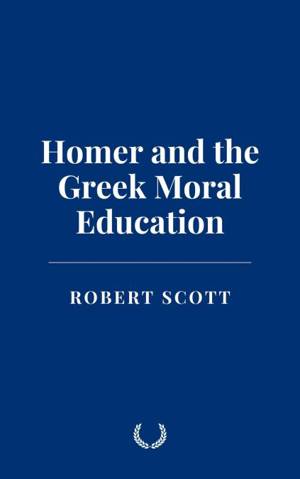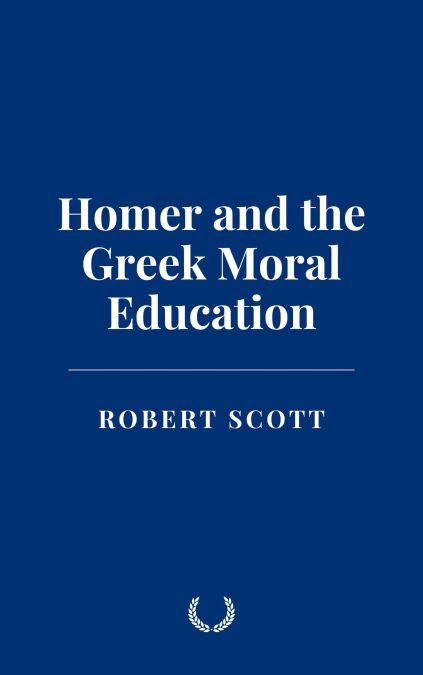
- Afhalen na 1 uur in een winkel met voorraad
- Gratis thuislevering in België vanaf € 30
- Ruim aanbod met 7 miljoen producten
- Afhalen na 1 uur in een winkel met voorraad
- Gratis thuislevering in België vanaf € 30
- Ruim aanbod met 7 miljoen producten
Omschrijving
Homer, the enigmatic poet of ancient Greece, stands at the confluence of myth and history, shaping the cultural and moral fabric of Western civilization. His epics, The Iliad and The Odyssey, are more than poetic masterpieces; they are repositories of collective memory, ethical inquiry, and societal values. Emerging during the late Geometric or early Archaic period of Greek history, around the 8th century BCE, Homer's works capture a transitional moment in the ancient Mediterranean world—a bridge between the oral traditions of a heroic past and the literate sophistication of a burgeoning polis-centered society.
The world Homer evokes is not an exact reflection of the Greece of his own time, but rather a blend of historical elements from the Mycenaean civilization (c. 1600–1100 BCE) and the so-called Dark Ages that followed its collapse. Archaeological evidence from Mycenaean sites such as Mycenae, Pylos, and Tiryns provides insight into the warrior culture, hierarchical society, and monumental architecture that inspired Homer's settings. The palaces and treasures unearthed by Heinrich Schliemann in the late 19th century, particularly at Troy and Mycenae, confirm that the poet's tales, while mythological, are rooted in historical realities.
In this world, values such as honor (timē), glory (kleos), and hospitality (xenia) governed social interactions, forming the ethical backbone of Homeric society. These concepts were not abstract ideals but lived principles that defined one's reputation and societal worth. The notion of kleos, for instance, underscored the Greek obsession with immortality through remembrance. Achilles' lament in The Iliad—"I would rather be a slave on earth for another man…than rule as king among the dead"—reflects the tension between mortal existence and the desire for eternal renown.
Homer's portrayal of these moral ideals was not merely descriptive but deeply didactic. His epics functioned as educational tools, transmitted orally by rhapsodes who performed them at symposia, festivals, and public gatherings. Plato, in The Republic, acknowledges Homer as the "teacher of Greece," a testament to his pervasive influence on Greek thought and character formation. The poet's narratives were not just stories of gods and heroes; they were ethical compasses that guided behavior, instructed youth, and reinforced communal values.
Specificaties
Betrokkenen
- Auteur(s):
- Uitgeverij:
Inhoud
- Taal:
- Engels
Eigenschappen
- Productcode (EAN):
- 9798230620754
- Verschijningsdatum:
- 15/01/2025
- Uitvoering:
- E-book
- Formaat:
- ePub

Alleen bij Standaard Boekhandel
Beoordelingen
We publiceren alleen reviews die voldoen aan de voorwaarden voor reviews. Bekijk onze voorwaarden voor reviews.








